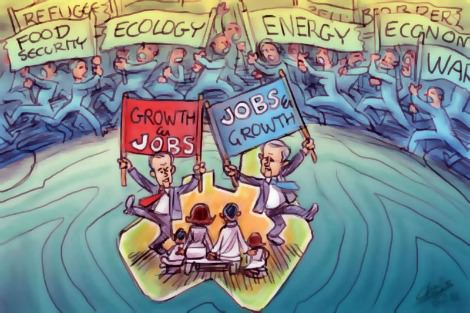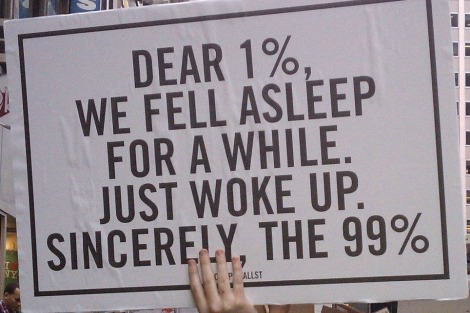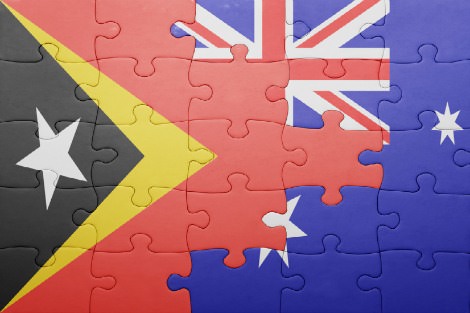Keywords: Economic Growth
There are more than 200 results, only the first 200 are displayed here.
-

AUSTRALIA
- Frank Brennan
- 10 June 2016
46 Comments
Sadly, the major political parties have forfeited any claim to govern in their own right because they have caused such disillusionment among so many voters about other policy issues with strong moral overtones. Any voter impressed with Pope Francis' encyclical Laudato Si' or inspired by his visits to asylum seekers on the islands of Lampedusa and Lesbos could not blithely vote for either of the major parties, without first determining how to place some continuing political and moral pressure on them.
READ MORE 
-

AUSTRALIA
Living within the United Nations community I've witnessed Australia fall from a well-respected international citizen, to becoming the spoilt, sneaky brat of international relations. Even the most blasé glance at the geo political currents moving through the planet reveal complexities this election pretends don't exist. Australians fighting about jobs and growth in the corner comes across as deeply deluded isolationism. The Great Barrier Reef is dying. The world is watching. Hello Australia? Anybody home?
READ MORE 
-

AUSTRALIA
- Andrew Hamilton
- 26 May 2016
7 Comments
The evidence of misbehaviour by banks has become public at a time when the underlying ideology has also been criticised. The inherent unlikelihood that an economy based on individual greed will benefit the whole of society is now patent. It is seen as much more likely that unregulated competition for material gain will lead to the concentration of wealth in the hands of the wealthy and powerful. Evidence now suggests that inequality hinders the economic growth it was presumed to nurture.
READ MORE 
-

RELIGION
- Andrew Hamilton
- 19 May 2016
13 Comments
The bishops speak less trenchantly than Pope Francis, who criticises sharply the assumptions and practices of neoliberal economics. But in the context of this election, they add their voice to that of those who are concerned about economic assumptions that enrich the few and exempt corporations and business from social responsibility. Their statement will encourage those who see the now notorious behaviour of banks, finance business and corporations as symptomatic of a vicious economic ideology.
READ MORE 
-

ECONOMICS
- Kate Galloway
- 28 April 2016
14 Comments
Historically, having a largely home-owning population has ensured both the social benefit of housing, and an economic benefit through enforced saving with long-term growth. In contrast, the negative gearing push splits the cultural and economic meaning of home ownership, because it focuses on investment. Negative gearing promotes property ownership but not home ownership. Thus the social benefits of home ownership that we have come to expect give way to bare economic indicators.
READ MORE 
-

AUSTRALIA
- Fatima Measham
- 18 April 2016
10 Comments
People are sensitised to government-enabled corporate excess and doubt elected officials are capable and willing to serve their interests. The lesson from the 2014 federal budget is that there are non-negotiables around the function of government: to provide the conditions that ensure the flourishing of all citizens. Yet in terms of future-proofing living standards, the Coalition has so far presided over an ideas bust rather than boom, unless boom is the sound of something spontaneously combusting.
READ MORE 
-

RELIGION
- Andrew Hamilton
- 07 April 2016
19 Comments
How do good people sink to this? The answer lies in the mutation of economic ideology from the crude buccaneering spirit of doing whatever it takes to get rich into a more urbane form. People see themselves as competing, not only for their own economic benefit, but for that of the company. This means greed can mask itself as altruism in serving a larger good. And as in the case of churches, identification with the company provides reason for protecting the company's reputation at all costs.
READ MORE 
-

AUSTRALIA
- Frank Brennan
- 21 March 2016
10 Comments
Rui Maria de Araujo, the prime minister of Timor-Leste, wrote to Malcolm Turnbull inviting him to turn a new leaf in the Australia-Timor relationship. It was not to be. But the Timorese are well used to winning the hearts and minds of Australians even when our political leaders appear to be tone deaf to their pleas. This time they have convinced the Labor Party about the justice of their cause, and there is every chance that the Australian community will rally behind them after the federal election.
READ MORE 